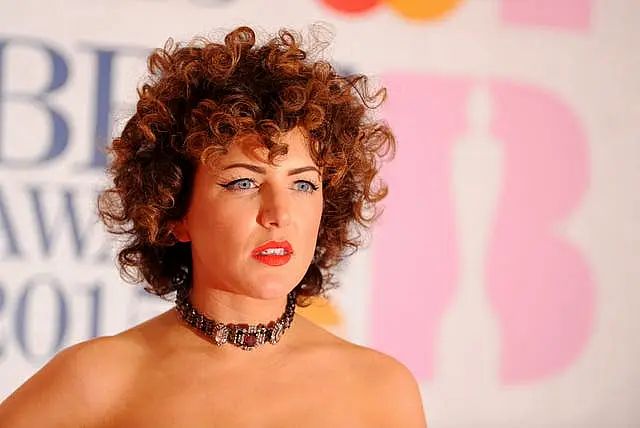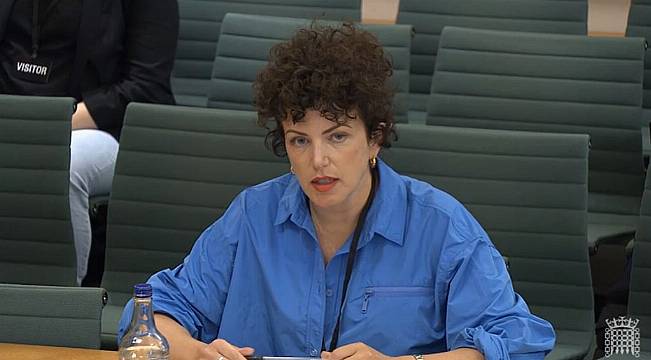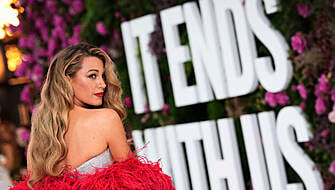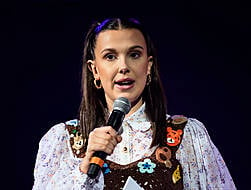Former BBC Radio 1 DJ Annie Macmanus has said women are not booking festivals or being signed to record labels, further perpetuating the music industry as a “boys’ club”.
The 45-year-old, known by her stage name Annie Mac, said she had “nothing to lose” while giving evidence at the misogyny in music inquiry at the House of Commons’ Women and Equalities Committee on Tuesday.
She said she had a “shield of protection” while working at the BBC, but nevertheless shared her experiences of the industry.

“My personal experience was I was always the only girl in the line-up, a lot of the time in the dressing room or backstage, the only artist that is a female, and that was just the way it was.
“It wasn’t until a few years in, life was crazy, that I started thinking ‘this isn’t okay’. I remember the first time I emailed a promoter back because I got asked to DJ and they sent me the festival line-up, and the first female name was 11 rows down.
“This was at the point where I felt I could say that … and they got quite defensive.”
She later added: “Time and time again … sound engineers would lean over you and take up your personal space and start fiddling with the volume, (they) don’t even ask, they just lean in and start fiddling as if you don’t know what you’re doing, that has happened to me countless times.
“I know they don’t do that to men because I’ve watched.”

Macmanus – who bid farewell to BBC Radio 1 in 2021 after 17 years – also said she finds the annual festival line-up announcements “very depressing” to see the lack of female artists and the general sedate level of progress.
“The bottom tiers of festival line-ups is chock-full of women,” she said.
“The fact of the matter is, for all the major festivals in the UK, the only female booker is (Glastonbury’s) Emily Eavis, every other festival is booked by a man.
“Yes, he may have female assistants, but it is the same as (record) labels, you have all these female executives, but all their top bosses are men.
“We need a woman to run a live promotion company the size of Festival Republic or Live Nation, you need women at that level, and in order to get them to that level they need to be able to feel it is an industry they can stay in and that they can be safe in, and have the menopause in, and have kids in and have maternity leave in – and still progress.”

During the inquiry, which aims to examine what misogynistic attitudes exist in the music industry and what steps can be taken to improve attitudes and treatment of women, Macmanus said it is ultimately about “investing in young women at the start of their career”.
She said: “If you go to a festival, and you see only men all day, that is going in as a young girl, whether you like it or not, and you are going to think there is not a place for you on that stage.
“It is undeniable that the existence of Billie Eilish and the fact that she is able to wear baggy clothes and dress exactly how she wants, the amount of young Billie Eilish-influenced artists that are going to come through on the back of that feels like such a huge step in the right direction.
“Billie Eilish is managed by her parents, she is very protected, and she is very precociously clever and smart, she’s in a unique position to be allowed to be herself. That, to me, is an example that it can be done.
“The more Billie Eilishs, and Lizzos, and Taylor Swifts and Adeles that happen, the more people will be forced to admit that women can sell tickets.”
“The music industry is a boys club … all the people at the very top levels have the money, therefore the power, the system is kind of rigged against women,” she added.
Macmanus appeared at the select committee on Tuesday alongside singer Rebecca Ferguson, 37, who found fame on The X Factor in 2010.







